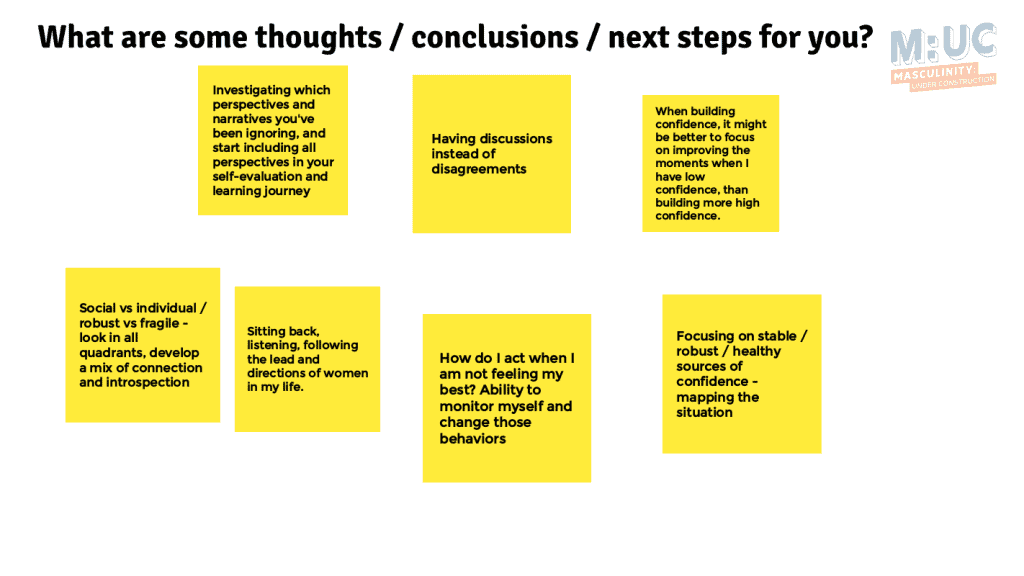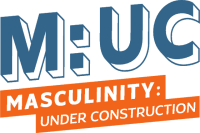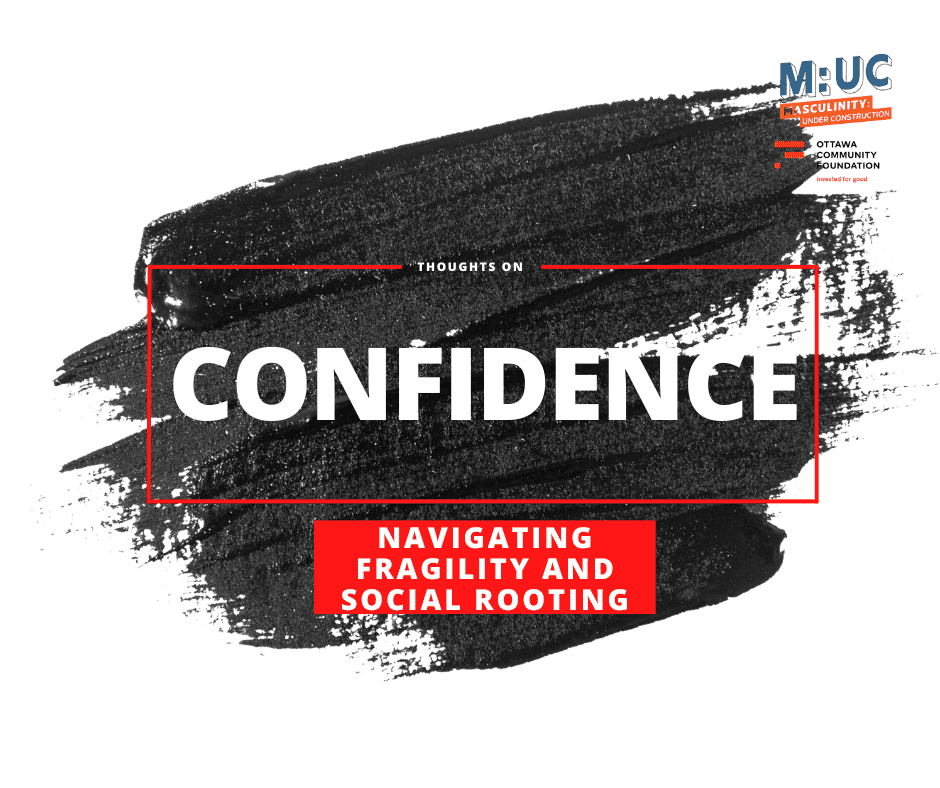
Are you a confident man? This was the topic of our workshop on March 11th.
We came together with a group of men, to discuss how we experienced confidence. The conversation was centered around three questions, and the conversation for each of these questions, was structured by participants placing their contributions and thoughts on a grid.
First we discussed what we were looking for in the workshop, and what we thought confidence was.
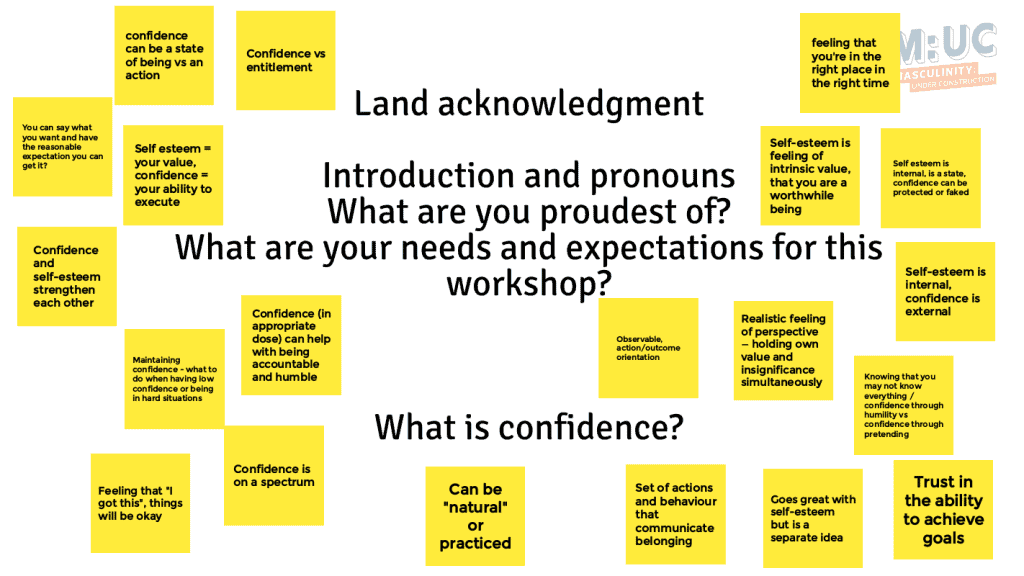
What are situations that impact confidence?
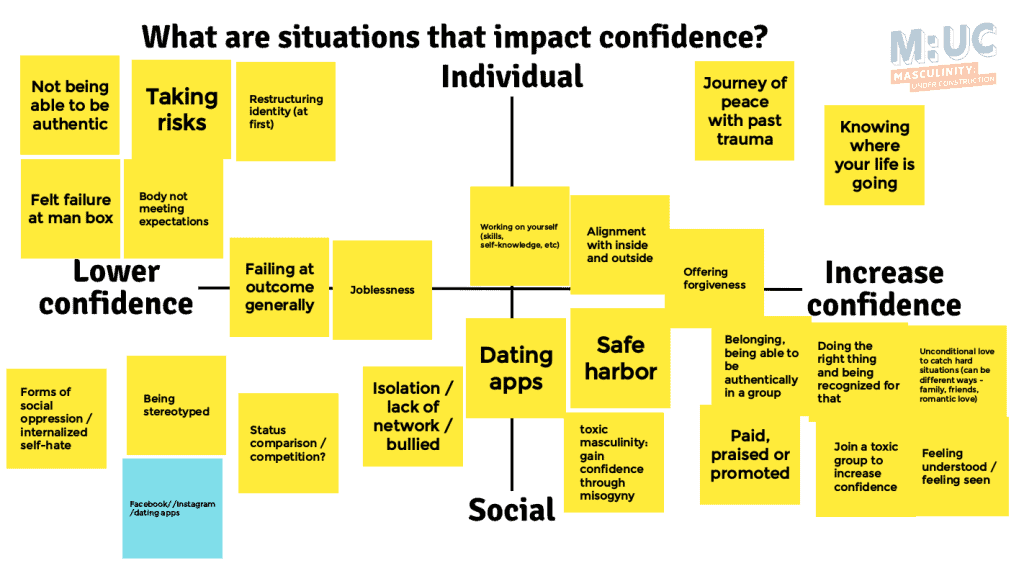
Notes:
There were also discussions about how addressing some of the needs above could be harmful over the long term, such as seeking belonging in groups that undermine other relationships, or negatively impact our understanding of our place in society – such as men’s rights groups or incel communities.
It was noted that systemic oppression doesn’t only homophobia does not only impact men who are gay – straight guys are also impacted, change their behaviors to avoid the stigma, and lose confidence.
What are different behaviors when having low confidence?
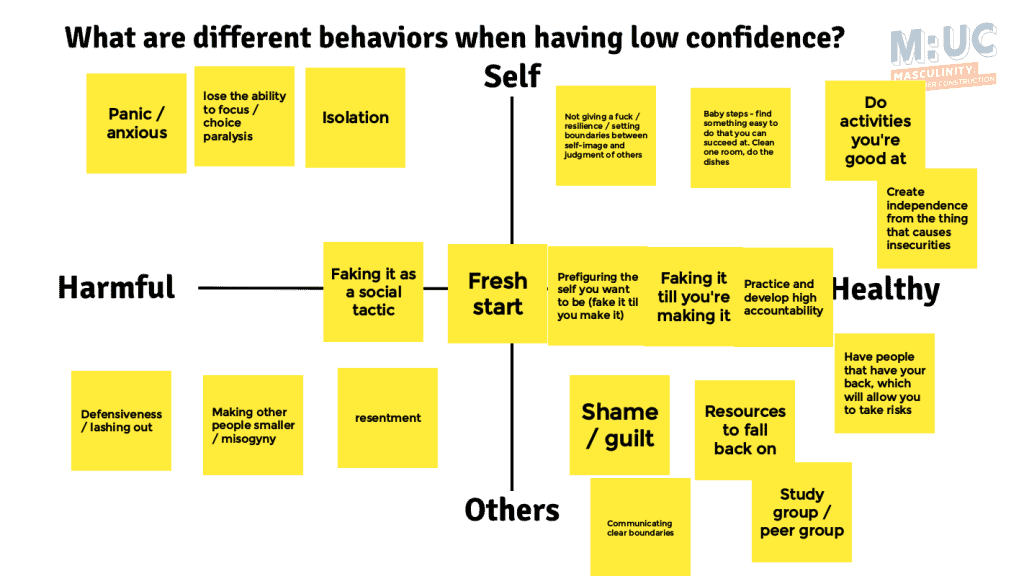
Notes:
When working on ourselves, we distinguished between shame and guilt. Guilt is about what we did, and how we can change what we do. This can be a healthy drive to change – especially since everyone should try to become a better person. Shame happens when we internalize the guilt, and we start to think negative about who we are. This impacts the value we ascribe to ourselves, and can have negative mental health impacts without necessarily contributing to us changing our actions and behaviors. Guilt can be healthy and lead to improvement, shame can be unhealthy and may cause us to try and make ourselves invisible for others, and isolate or live without authenticity.
What are different sources of confidence?
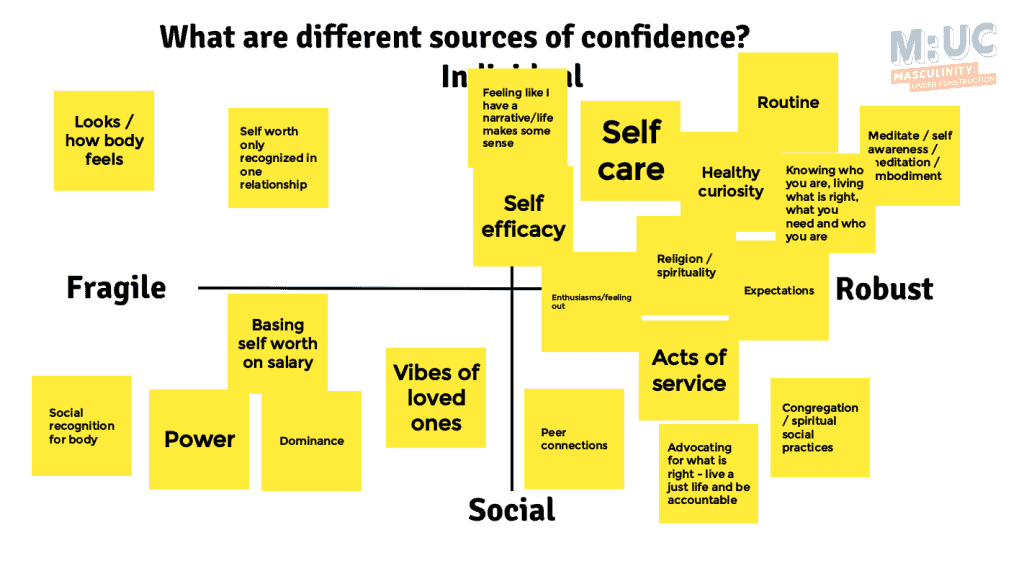
Notes:
The distinction between fragile and robust is about the sources of confidence. Some sources of confidence may be expected to fall away. For example, bodies change over time, and basing confidence in how our bodies look set us up for struggles with confidence when our bodies age.
This sheet did not make an explicit difference between healthy sources and unhealthy sources – but power and dominance were noted as unhealthy, as well as fragile.
Thougths and next steps
